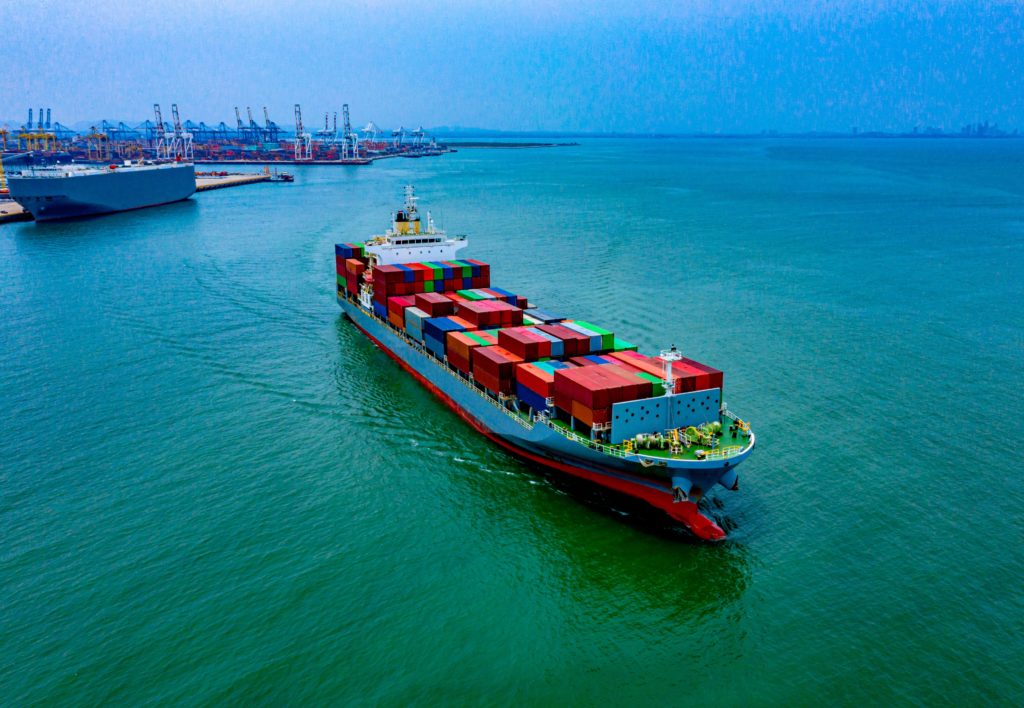Importing Biological Product
Importing Biological Products
Importing Biological Products into the US
Biological products are substances derived from living organisms or their components, such as vaccines, blood and blood products, tissues, cells, and gene therapies. Importing biological products into the US requires navigating a complex regulatory landscape. In this guide, we will cover the key steps involved in importing biological products into the US.
Step 1: Determine if Your Product is a Biological Product
The first step in importing biological products into the US is to determine if your product is indeed a biological product. Biological products are regulated by the Food and Drug Administration (FDA) and are subject to a different set of regulations than other products. If you are unsure whether your product is a biological product, consult with a regulatory expert or contact the FDA for guidance.
Step 2: Obtain the Necessary Permits and Licenses
Importing biological products into the US requires obtaining the necessary permits and licenses. The FDA requires importers of biological products to have a valid Biologics License Application (BLA) or to have obtained an appropriate exemption. Additionally, importers must obtain a permit from the Center for Biologics Evaluation and Research (CBER) before importing biological products into the US.
Step 3: Ensure Compliance with FDA Regulations
Importers of biological products must comply with a range of FDA regulations, including labeling requirements, quality control standards, and reporting requirements. It is important to ensure that your product meets all relevant FDA regulations before importing it into the US.
Step 4: Arrange for Shipping and Transportation
Once you have obtained the necessary permits and licenses and ensured compliance with FDA regulations, it is time to arrange for shipping and transportation of your biological product. It is important to work with a reputable and experienced logistics provider to ensure that your product is transported safely and efficiently.
Importing biological products into the US can be a complex process, but with the right guidance and preparation, it is possible to navigate the regulatory landscape successfully. By following the key steps outlined in this guide, you can ensure compliance with all relevant regulations and import your biological product into the US with confidence.
Biological Product Regulated by CBER
The Center for Biologics Evaluation and Research (CBER) regulates biological and related products, including blood and blood products (which includes certain kinds of devices), vaccines, allergenics, tissues, and cellular and gene therapies. CBER also regulates the medical devices involved in the collection, processing, testing, manufacture and administration of licensed blood, blood components and cellular products and all HIV test kits used both to screen donor blood, blood components, and cellular products and to diagnose, treat, and monitor persons with HIV and AIDS.
CBER regulates:
- Biological products, including blood and blood products, vaccines, allergenics, gene therapies and xenotransplantation.
- Human cells and tissue products (HCT/Ps) that are intended for implantation, transplantation, infusion, or transfer into a human recipient. This may include bone, ligament, skin, dura mater, heart valve, cornea, hematopoietic stem/progenitor cells derived from peripheral and cord blood, manipulated autologous chondrocytes, epithelial cells on a synthetic matrix, and semen or other reproductive tissue.
- Medical devices involved in the collection, processing, testing, screening, manufacture and administration of blood, blood components, and human tissue and cellular products.
- HIV test kits used to screen donor blood, blood components and tissue and cellular products (HCT/Ps), and products used to diagnose, treat, and monitor persons with HIV and AIDS.
- Certain drug products, including blood bags with anti-coagulant.
In-Depth Coverage: Country of Origin
- Country of Origin of Imported Merchandise
- Customs Ruling: Country of Origin
- Country of Origin: Food Products
- Country of Origin: Chemical and Pharmaceutical Products
- Country of Origin & Country of Manufacture: CBP vs. FDA
- Country of Origin: Substantial Transformation or Country of Assembly Test
- Country of Origin and Free Trade Agreement
- Country of Origin and Section 301
CBER is responsible for ensuring:
- the safety of this nation's entire blood supply and the products derived from it;
- the production and approval of safe and effective vaccines, including childhood vaccines;
- an adequate and safe supply of allergenic products;
- the safety and efficacy of cellular and gene therapy products;
- the safety and efficacy of certain drugs and medical devices used in the testing and manufacture of biological products.
- the safety and efficacy of certain of Human Cells, Tissues and Cellular and Tissue-based Products.
Basic Standards and Procedures for FDA Review of Imports
The first step in any importation process begins with U.S. Customs and Border Protection (CBP). You must comply with CBP rules, requirements, and processes. All products offered for entry into the United States, including items for personal use, must be declared to CBP. CBP refers all FDA-regulated products to the FDA for review.
All products regulated by the Food and Drug Administration (FDA) must meet the same requirements, whether imported from abroad or produced domestically.
In order to import a CBER-regulated product into the United States, the product must meet the FDA’s regulatory requirements. Foreign firms that manufacture products regulated by CBER that are directly or indirectly imported into the United States must comply with applicable FDA requirements before, during, and after importing into the United States.
FDA does not recognize regulatory approvals from other countries.
FDA receives electronic information about most FDA related entries from CBP. FDA currently receives this information through its Operational and Administrative System for Import Support (OASIS). All FDA-regulated products are electronically screened before they enter the U.S. The FDA determines whether products are admissible into U.S. commerce and may refuse entry to any that violate or appear to violate any provisions of the Federal Food, Drug, and Cosmetic Act (FD&C Act).
In-Depth Coverage: Marketing and Advertising Compliance
- Federal Trade Commission (FTC) Advertising Rules
- Made in USA Standard
- FTC Regulation on Environmental Claims
- Adverting and Marketing on the Internet
- Label Claims for Conventional Foods and Dietary Supplements
- Dietary Supplement Advertising: What is FTC's Truth-in-Advertising Law?
- USDA Country of Origin Labeling (COOL)
- FTC Rules & Regulations on Food Advertisement
Are there any other federal agencies that may have requirements that apply to biological specimens?
Yes. The Centers for Disease Control and Prevention (CDC); the US Department of Agriculture (USDA), Animal and Plant Health Inspection Service (APHIS); and the U.S. Customs and Border Protection have regulations that may also apply to biological specimens.
If the material is suspected or known to contain etiologic agents or has not been tested for etiologic agents, a CDC Etiologic Agent Import Permit may be required.
The U. S. Department of Agriculture (USDA), Animal and Plant Health Inspection Service (APHIS), Veterinary Services (VS), regulates the import of all animal-origin materials that could represent a disease risk to United States livestock and the import and transport of infectious organisms and vectors of disease agents. This includes not only animal products and by-products, but biological materials that contain or have been in contact with certain organisms and animal materials (including cell cultures). USDA/APHIS/VS can be contacted at:
What is verified at the time of importation for CBER regulated products?
At the time of importation, the FDA will verify compliance with the following product specific requirements for CBER regulated products:
Biological Products
- Biologics License Application (BLA): This requirement may be met by providing the Submission Tracking Number (STN) and/or a Biologics License Number (BLN).
- Investigational New Drug application (IND): This requirement may be met by providing the IND number.
Human Drugs regulated by CBER
- Drug Establishment Registration: This requirement may be met by providing the drug registration number (REG).
- Drug Approval: This requirement may be met by providing the New Drug Application (NDA) or Abbreviated New Drug Application (ANDA) number.
- Investigational New Drug approval (IND): This requirement may be met by providing the IND number.
In-Depth Coverage: Importing Medical Device
Medical Devices Regulated by CBER
The Center for Biologics Evaluation and Research (CBER) regulates the medical devices involved in the collection, processing, testing, manufacture and administration of licensed blood, blood components and cellular products. The medical devices regulated by CBER are intimately associated with the blood collection and processing procedures as well as the cellular therapies regulated by CBER. CBER has developed specific expertise in blood, blood products and cellular therapies and the integral association of certain medical devices with those biological products supports the regulation of those devices by CBER.
CBER also regulates all HIV test kits used both to screen donor blood, blood components and cellular products, and to diagnose, treat and monitor persons with HIV and AIDs.
Jurisdiction of medical device review by the Center for Biologics Evaluation and Research (CBER) and the Center for Devices and Radiological Health (CDRH) is governed by the FDA Intercenter Agreement between CBER and CDRH (October 31, 1991).
CBER regulated medical devices must comply with the same requirements as medical devices regulated by the Center for Devices and Radiological health (CDRH). Additionally, CBER regulated medical devices may require one of the following pre-market submissions:
- Premarket Notification 510(k) (PMN): This requirement may be met by providing the premarket notification (510(k)) number. Read more…
- Premarket Approval (PMA): This requirement may be met by providing the premarket approval number. Read more…
- Investigational Device Exemption (IDE): This requirement may be met by providing the IDE number. Read more…
Human Cells, Tissues, and Cellular and Tissue-Based Products (HCT/Ps)
- HCT/P Establishment Registration: This requirement may be met by providing the registration number (HRN).
- HCT/P Affirmation: This element may be met by affirming compliance with 21 CFR Part 1271 (HCT).
In-Depth Coverage: Customs Valuation
How Does FDA Verify Compliance with Requirements for Products Regulated by CBER?
FDA entry reviewers are trained to verify compliance with applicable product requirements. The FDA entry reviewers use the information provided to FDA in the importer’s entry transmission such as:
- Declared Manufacturer
- Declared Importer and Consignee
- Product Description
- Affirmations of Compliance (A of C)
These entry declarations are compared to information in FDA’s internal data systems. If the information matches, then compliance is generally verified; if the information does not match, FDA may gather additional information or may detain the product.
The submission of correct and accurate entry data along with the relevant A of C codes will help expedite the entry review process. Supplying this information accurately increases the likelihood that your shipment may be processed electronically and not held for manual review because FDA’s screening tool, PREDICT, can verify the declared information against FDA internal data systems.
Registration and Listing
Establishments that are involved in the production and distribution of blood and blood products, medical devices, biological drug products and HCT/Ps intended for commercial distribution in the United States are required to register and list annually with the FDA.
How does FDA verify registration information for CBER regulated products?
FDA will verify that the declared manufacturer is registered by comparing the submitted information to FDA’s establishment registration database. If required, the FDA will also verify the declared importer is registered. If the information matches, then compliance is verified; if the information does not match, FDA may need to gather additional information or may detain the product.
How do I obtain blood establishment registration information?
You may search the blood establishment registration database for registration information for any blood establishment that is registered with FDA.
How does FDA verify premarket submissions?
FDA will verify the declared BLA, PMA, 510(k), IDE, NDA, ANDA, IND, by comparing the submitted information to FDA’s data systems. If the information is not supplied, or is incomplete or inaccurate, it may delay the review of your entry. If the information matches, then compliance is generally verified; if the information does not match, FDA may need to gather additional information or may detain the product. If the product requires a BLA, PMA, PMN, IDE, NDA, ANDA, or IND and does not have one, it will be subject to refusal.
How do I obtain products and establishment information for products regulated by CBER?
You may visit CBERs Biologics Products & Establishments page for listings of 510(k) submissions, licensed biological products, NDAs and PMAs.
Affirmation of Compliance Codes
Affirmation of Compliance codes (A of C) are three letter codes plus qualifiers (where applicable) that can be provided at the time of import to facilitate FDA review. Qualifiers provide product and manufacturer specific information FDA can use to verify your product is in compliance.
Providing the correct A of C codes reduces the likelihood that your shipment will be held for further FDA entry review during FDA’s import screening process. FDA uses A of C codes to assist in verifying that your product meets the appropriate requirements. Submission of A of C codes is only mandatory in some instances and is not required for all scenarios. Submitting voluntary A of C codes in addition to all mandatory A of C codes may expedite initial screening and review of your entry.
Examples
Biologics License Number: BLN 1234
This affirmation of compliance code (BLA) and the qualifier (1234) is the U.S. Biologics License Number issued by FDA/CBER to the manufacturer of the biological product identified in the FDA line. The BLN at a maximum would be a four digit number.
HCT/P Registration Number: HRN 1234567890
This Affirmation of Compliance Code (HRN) and qualifier (1234567890) are used if the establishment is registered with the FDA. The required qualifier should be the HCT/P establishment registration number issued by FDA/CBER for the product's manufacturing firm identified in the FDA entry line.
HCT/P Compliant: HCT
This affirmation should be used to indicate the Human Cellular and Tissue Product (HCT/P) being imported or offered for import is in compliance with all applicable requirements. There is no qualifier for this code.
Combination Products
Combination products are therapeutic and diagnostic products that combine drugs, medical devices, and/or biological products. Based on primary mode of action, a combination product is assigned to a “lead-center” that has primary jurisdiction for its regulation.
Importing Biological Samples for Basic Scientific Research or Testing
If the biological specimens you are offering for import are intended for use only for testing in a clinical laboratory or for basic scientific research and are not articles intended for the prevention, treatment, diagnosis, or cure of diseases, injuries, or conditions in human beings, the specimens are not regulated by FDA. Thus, when submitting the entry notification for such specimens, your broker/entry filer will need to “disclaim” FDA jurisdiction if the CBP HTS code allows.
In-Depth Coverage: Trade Remedies
Quick Link To U.S. Customs & Import Requirements
FDA-Regulated Products and Import Requirements
- What is Food Safety Modernization Act (FSMA)?
- Prior Notice of Imported Foods
- Food Facility Registration
- Risk-Based Preventive Controls for Human Food
- Risk-Based Preventive Control for Animal Food
- Standards for the Growing, Harvesting, Packing, and Holding of Produce for Human Consumption
- What is Foreign Supplier Verification Program (FSVP)?
- Protect Food against Intentional Adulteration
- FDA Regulated Product in Foreign Trade Zone (FTZ)
- Entry Review Process for FDA Regulated Products
- Country of Origin VS Country of Manufacture
- Foods Regulated by FDA or USDA: What is the Difference?
- Label and Labeling Claims for Conventional Food and Dietary Supplements
- What is USDA Country of Origin Labeling (COOL)?
- Import for Export of FDA Regulated Products
- FDA Regulated Products in Personal Baggage or Sending by Mail or Courier
- International Mail Facility (IMF) and FDA Regulation
- Importing Biological Product Regulated by CBER
- Importing Cosmetics and Voluntary Cosmetic Registration Program (VCRP)
- Importing Drugs into the U.S.
- Importing OTC Drugs into the U.S.
- Importing Veterinary Drugs into the U.S.
- Importing Tobacco Products into the U.S.
- Importing Medical Devices into the U.S
- Importing Food Products into the U.S.
- Importing Radiation-Emitting Products into the U.S.
Customs Clearance and Import Requirements
- Entry of Imported Merchandise
- What is Section 321 Entry?
- What is Automated Commercial Environment (ACE)
- What is an Automated Broker Interface (ABI)?
- Who is Ultimate Consignee?
- What is Non-Resident Importer Program?
- Country of Origin of Imported Merchandise
- What is the Country of Assembly?
- What if the FDA's Country of Manufacture?
- Marking of Country of Origin on U.S. Imports
- What is Customs Bond?
- Reconciliation Prototype and Bond Rider
- Who Needs a Customs Broker?
- What is Customs Ruling Program?
- Classification of Imported Goods
- How is imported merchandise appraised?
- What are Import Quotas?
- What are Trade Remedy Duties?
- Antidumping Duty (AD) and Countervailing Duty (CVD)
- What is Foreign Trade Zone (FTZ)?
- What is Importer Security Filing (ISF)?
- What is Temporary Importation under Bond (TIB)
- What is In-Bond Process?
Guidance on customs & logistics solution for traditional and e-commerce importers and exporters
Importer Security Filing (ISF)
An ISF is required when cargo (ocean only) laden on vessel at a foreign port is destined for shipment to the U.S. Under ISF rule, some importing information and details regarding cargo must be transmitted to the CBP at least 24 hours before goods are loaded onto the vessel.
Freight Forwarding
Looking for a freight forwarding partner? To move your cargo from its current location through customs to its final destination we will partner with you to find the best way for your business. Whatever your transportation, logistics or customs clearance needs, we will do our best to customize a solution for your needs.
Customs Clearance
The goods imported into the U.S. are required to be declared to CBP. Our customs broker will help you stay in compliance with customs laws and regulations and clear your goods quickly and efficiently with our electronic Automated Commercial Environment (ACE) and Automated Broker Interface (ABI) Single Window System.
Warehousing & Distribution
Our warehouse facility offers great potential for serving as a regional hub with over 145,000 SF storage capacity close to Los Angeles Airport & Los Angeles/Long Beach Sea port. With our extensive experience in freight services, your import/export cargo will be handled quickly and effectively.
Non-resident Importer Program
If you want to sell your products in U.S. marketplaces, but you are a business owner located outside of the U.S. and do not have an entity or presence in the U.S., you need to be established as a Foreign Importer of Record before your products can be imported into the U.S. We can help you.
Section 321 Entry
Section 321 entry allows importing free of duty and tax for shipments imported by one person on one day having a fair retail value in the country of shipment not more than $800. We provide our resident and non-resident clients with dedicated ACE eManifest solutions for Section 321 entry of all modes of transportation.
E-Commerce
The Internet has made it easy to find and purchase items from almost anywhere in the world. Our e-commerce experts will help you find the right solution for your international transportation, customs clearance, and delivery to your final destination. We also provide value-added repackaging, warehousing and distribution services.


























